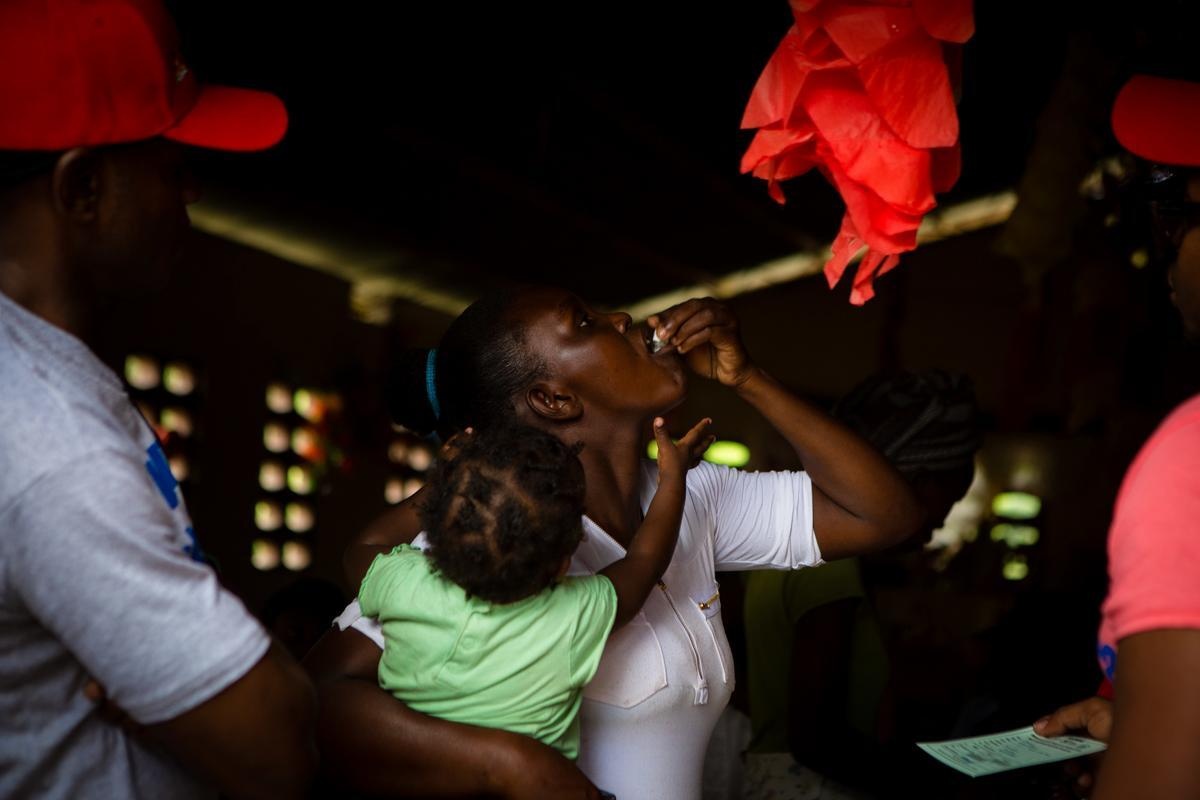A New Cholera Outbreak Emerges in Haiti
Officials report deaths, hospitalizations as PIH team cares for patients
Posted on Oct 13, 2022

This information was updated on October 17.
A recent cholera outbreak in Haiti, announced by the Haitian Ministry of Public Health and Population earlier this month, is adding turmoil to the country’s escalating troubles, where gang violence, damaged communications systems, and dire fuel shortages have increased over the past 15 months.
The medical team at Zanmi Lasante, as Partners in Health is known in Haiti, reports there are seven suspected cholera cases being treated at Hôpital Universitaire de Mirebalais as of October 17, five adults and two children.
Anticipating more cases to come, the team has converted one of its COVID centers into a cholera treatment center, with an 18-bed capacity.
Children Most Affected
As of October 12, the Haitian Ministry of Health reported 384 suspected cases of cholera; 43 laboratory-confirmed cases; 197 people hospitalized and 22 deaths. Of the total reported cases, 53% are male and 46% are female. The most affected age group is 1 to 4-year-olds.
ZL has been distributing food and hygiene supplies to staff and trying to procure fuel to keep medical sites running. The team is also working with international partners to rapidly distribute essential supplies to respond to cholera. To date, not one ZL facility has closed or been forced to stop caring for patients throughout the region. Indeed, 1.3 million people, or 1 in 10 Haitians, rely on ZL-supported facilities for care, treatment, and accompaniment.
Previous Outbreaks
Haitians never experienced cholera before 2010. Then, just after the devastating earthquake that year, UN peacekeepers arrived in the country from Nepal, which had recently suffered a cholera outbreak, and set up operations in a camp near Mirebalais with poor plumbing. Contaminated sewage leaked into a tributary of the longest river in Haiti, the 200-mile Artibonite river, which is a water source for countless Haitians.
This led to a massive cholera outbreak: more than 9,700 people died and at least another 815,000 were sickened from the disease. Cholera causes such severe vomiting and diarrhea that—if left untreated—a patient can die from dehydration within 24 hours. Many victims are children.
Mass Vaccination Efforts
PIH was among the first responders to the 2010 outbreak in Haiti. Within several months, staff set up 11 cholera treatment facilities throughout the Central Plateau and lower-Artibonite and immediately began treating the sick. More than 3,300 community health workers were trained to identify symptoms and triage neighbors to nearby health centers. Ultimately, PIH treated more than 180,000 people.
Doctors, nurses, and community health workers also worked to prevent cholera infections by teaching about proper water and sanitation practices and vaccinating as many patients as possible, which boosts immunity for up to five years. In 2012, PIH vaccinated 50,000 people in communities north of St. Marc. And following Hurricane Matthew in 2016, leaders traveled to the south to help the government vaccinate 800,000 residents.
That campaign was followed by another effort in 2017: ZL, in collaboration with the national Ministry of Health and Massachusetts General Hospital's Center for Global Health, launched a vaccination campaign that aimed to cover the entire commune of Mirebalais, or roughly 100,000 people. Each resident received two doses of the vaccine over the course of a month, along with interventions to help treat drinking water at home and educational messages about good hygiene and sanitation.

